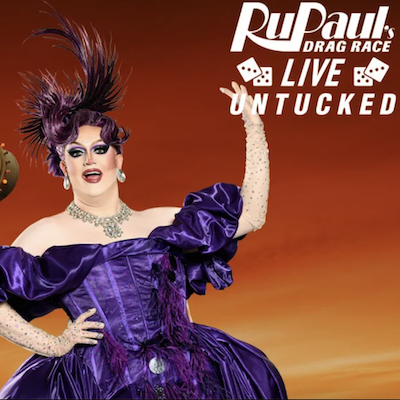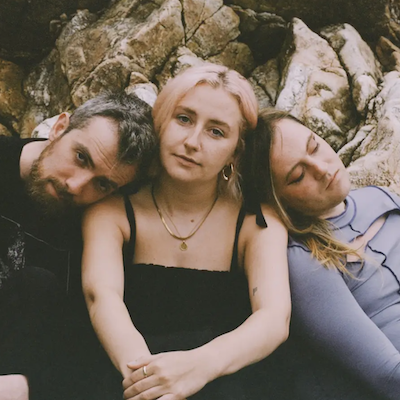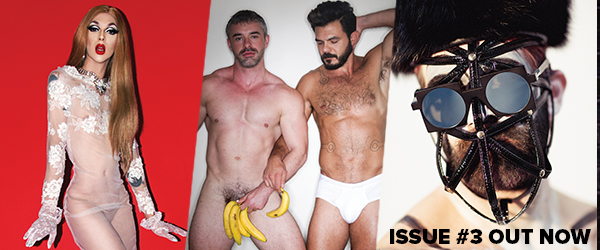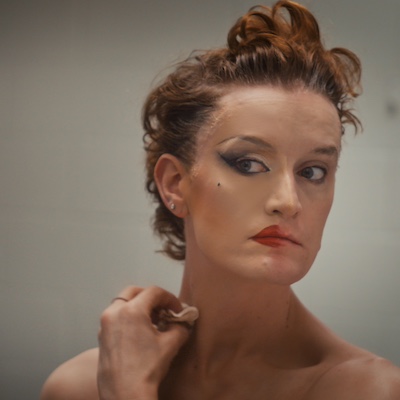
The Lady may be from Camden, but Rex Wheeler—the ballet dancer-turned-drag star of RuPaul’s Drag Race Season 14—is still navigating his sense of self and place. In Lady Like, the alluring and deeply emotional documentary directed by Luke Willis, we see a more intimate side of the performer known for seamlessly blending ballet with the art of drag. We sat down with Lady Camden to discuss the experience of revealing this vulnerable side of her journey, the behind-the-scenes reality of becoming a celebrated performer on drag’s biggest stage, and how her post-Drag Racecareer includes gender-bending ballet, Sex and the City-inspired podcasting, and a deep admiration for Mariah Carey’s inimitable 1997 performance of My All.
We know you of course as Lady Camden. But if Lady is your title and Camden is your surname, what is your Christian name?
Oh, I don’t know. Rex would be kind of a fun first name, wouldn’t it? Lady Rex Camden.
Very royal connotations as well, Rex!
Yeah, and very gender-fuck, right? ‘Cause it means king. I don’t know. Maybe it’s just… I’ll try and think of something by the end of this interview. Maybe it’s Loverboy—Lady Loverboy Camden.
We would love that! Lady Like documents your journey as overcoming childhood struggles, becoming a ballet dancer/choreographer and later a RuPaul’s Drag Race star. How did the filming process begin?
It wasn’t really my idea. During the season airing, a lot of queens put out social media content—music videos, fierce photos. My friend Luke and I made short films, some narrative, some music videos, just for fun. One of them, I Don’t Need a Reason, was an homage to ballet and my history with dance. Luke took my interview and turned it into a voiceover. My story resonated with him—he also comes from ballet and had a bumpy adolescence.
He realized there was more to my journey than what people see in a reality competition. It’s about retracing old footsteps, going home, confronting the past. You expect to return victorious, to make everyone proud—but then there’s this realization: I’ve changed. I’m not that person anymore. It can be awkward revisiting places that weren’t fun as a kid.
But there’s joy in it too. We didn’t know how the documentary would turn out—it’s a gamble. But it ended up being a rich, crazy journey, from being a local drag queen to the runner-up of my favorite TV show. We knew it would be worth capturing.
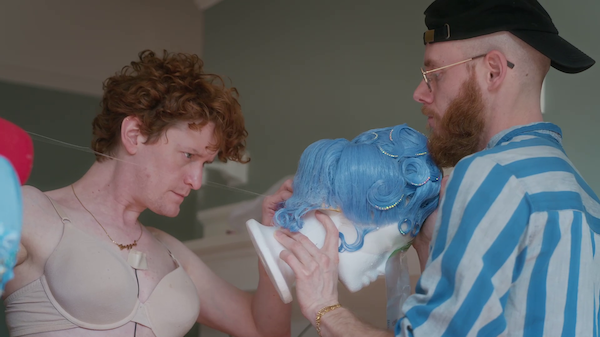
Drag Race contestants often go in knowing their “story.” Was that something you considered either on the show or in Lady Like?
Yeah. But I didn’t want to manufacture a narrative. I approached both Drag Race and this documentary with an open heart, letting things unfold naturally. I have an unconventional drag background—I came from the UK, trained to be a principal ballet dancer. Ballet is one of the most competitive fields, demanding perfection. Leaving home young, losing my brother—those experiences toughen you, sometimes in good ways, sometimes in ways that aren’t great. I’ve choreographed, acted, had so many different lives before drag. I figured if nothing else, this documentary will be chaotic.
Geography seems to be a major theme in Lady Like—moving between places, not quite fitting in. You left home for ballet school, moved to Sacramento for work, then to San Francisco for drag. Do you feel a sense of statelessness?
That’s a great observation. Every chapter of the film is punctuated by location. Even in my Naughty Nutcracker show, I mentioned that my sense of home feels blurry. I don’t know if that’s common for queer people, but it’s something I feel. I had this fantasy of winning Drag Race, returning home to a grand welcome. That’s not what happened. I didn’t expect to feel at home in San Francisco. In ballet, if you don’t land a job in London, you have to move. I never imagined Sacramento. I told myself, I’ll be here a year, tops. But the people made me feel at home. Then I moved to San Francisco, and I found a sense of belonging in the Castro. It’s just a small, queer corner of the world where people embrace each other. Ballet is about perfection. Drag is about play, exploration, mistakes.
The lesson? You never know where you’ll end up. It won’t look like what your 16-year-old self imagined, but it can still be beautiful.
People assume dance is very gay-friendly, but as someone with a master’s in dance, I know ballet is actually quite conservative—it often emphasizes traditional masculinity as a counterpoint to female dancers. Did you find that stifling? Was it hard merging ballet and drag?
Definitely. When I choreographed in ballet, I had creative freedom, but even then, pushing boundaries could make audiences uncomfortable. I recently choreographed a romantic female duet for a ballet company, and even that felt like a step forward.
In drag, we’re always looking for something fresh. Drag Race has had so many seasons, so many franchises, so many queens replicating their idols—something new excites people. Ballet is slower to evolve. Some companies are pushing boundaries, but many audiences love tradition. They come for The Nutcracker, Swan Lake, Sleeping Beauty. It takes time for the art form to catch up.
And dance doesn’t have the same media presence or financial support as music or drag.
Exactly. Music is everywhere. Dance demands focus. It’s not bite-sized or in passing—you have to sit, watch, absorb. It’s a three-course meal. That’s what excites me about returning to choreography. With my experiences in drag and life, I want to push the art form in my own personal way.
With the new Drag Race season, there’s been a lot of discussion about youth in drag. Some of the queens on Season 17 are calling Lexi Love “Grandma” for being the eldest cast member—at the ripe old age of 33. Do you think there’s a hyper-focus on younger queens?
Reality TV—and society in general—favors youth. People love looking at young, beautiful-skinned performers. Younger queens are eager to succeed, willing to say and do anythingfor attention. Older queens, on the other hand, know who they are—they’re not desperate for validation.
Producers find it easier to work with young, excitable contestants because they’ll jump at every opportunity. But what’s missing is the depth that comes with experience. Take Bianca Del Rio—she did drag for years before Drag Race. She’s unshakable, always Bianca, and thrives in any scenario.
Newer queens can be talented, but you can’t truly know who you are in just six months or a few years. That’s what’s missing in newer seasons—a sense of character that comes from really knowing yourself. It takes time. Even I was still figuring myself out when I did Drag Race after four years.
Would you ever do Drag Race UK?
I’ve thought about it—I love the UK season. But to compete, I’d have to say, “I’m the UK’s next superstar,” and I’ve never even done drag in England. I started after living in the US for seven years. I’d feel like a phony. But it would be fun.

You mentioned a moment with RuPaul where she seemed frustrated with your tentativeness. Do you think queens seek approval from her?
Everyone fantasizes about RuPaul loving them, seeing them, making them laugh. But there are so many girls there who want the same. I got nervous around RuPaul. I’d think, “Say something funny! Be witty!” But that pressure made me hold back. Maybe it’s me being British and a ballet dancer, but I was really shy and nervous. RuPaul told me that wasn’t compelling. Michelle said, “Your quietness will affect you in the competition,” and she was right. The cool thing that I leaned is that lesson applies beyond Drag Race—dating, life. Don’t be so guarded.
Through the film, there’s a younger version of you observing. If you could tell yourself something 20 years from now, what would it be?
“Don’t overthink it. Just enjoy it.” You get caught up worrying—what people think, what RuPaul thinks. But in 20 years, I’d say, “Girl, who the fuck cares? Have fun while you’re young.”
What else is coming up for you?
Last year, I wrote and produced two shows in San Francisco. One was about the original Pride flag (Lady Land), illustrating what each color represents through a fun, live visual performance. The other was my second annual Christmas show (Naughty Nutcracker), inspired by Alice in Wonderland, where the journey takes audiences through different parts of San Francisco. I’d love to bring both shows back and maybe even take them to other cities.
I’m also planning to release a couple of fun songs for the mega-fans. I don’t think I’m Mariah Carey, but I love creating themed music just for the fun of it. And I really want to start a podcast.
I’m a huge Sex and the City fan, and I love therapy, so I want to create a podcast that blends the two—discussing themes like dating, boundaries, and sex through the lens of Sex and the City episodes. We’d explore how certain topics have aged, what still rings true, and bring in guests to share their perspectives. It’s something that everyone could apply their own life experiences to in some way.
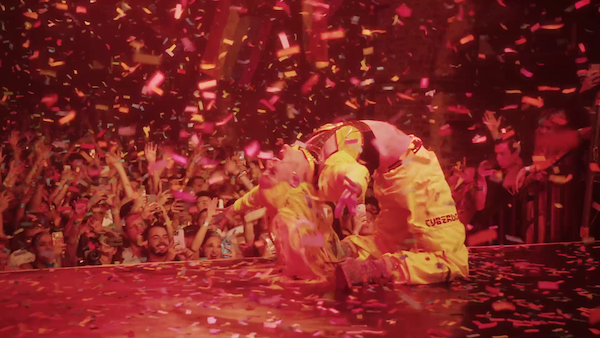
Loverboy Magazine is named after Mariah Carey’s hit song. Do you have a favorite Mariah moment?
I fall into YouTube rabbit holes of ’90s Mariah. Vanishing is my favorite song, but her live performances of Vanishing, Forever, and My All are just unbeatable. That My All performance—her free-flowing curls, a simple black dress—it’s perfection.
There’s the Mona Lisa, The Scream, The Girl with the Pearl Earring… and then there’s Mariah Carey singing My All live. It’s a masterpiece. You can’t recreate it. Even she can’t recreate it.
They should be broadcasting it from the International Space Station.
Yes! Just keep sending it out on repeat!
Watch Lady Like on AppleTV or Amazon
Interview by George Alley



